The Day of the Swayamvar
“I feel a strange sense of foreboding, my lord,” said the Queen of Kashi to her husband, Kashya, the King of Kashi or Kashiraja. The day of the swayamvar of their three daughters, Amba, Ambika, and Ambalika, dawned bright and clear.
Yet the queen was worried, and instinctively felt that something bad was waiting to be unleashed on her family today. She continued, “You should’ve sent the invitation to Hastinapur. After all, wouldn’t it be good for us if one of our daughters chose the Kuru king as her husband?”
Kashya scoffed at his wife’s remarks and said, “When my father sent a proposal of marriage between my sister and Bhishma, sorry Devavrat as he was known in those days, King Shantanu of Hastinapur rejected it, saying Kashi was not good enough for the Kurus.”
“How do you expect me to send an invitation to that family? To be insulted again? Do you take me to be a fool? Moreover, Vichitravirya is a weakling and our daughters deserve better than him.”
“But what about Bhishma, the mighty protector of the Kuru clan? Can we handle his fury?” The queen’s voice shook in fear at the mention of his name.
“Oh! If he came here uninvited, the huge number of our soldiers guarding Kashi’s perimeter would deal with him severely. He will not be able to get in,” said Kashya. But, seeds of doubt steadily growing in size and fearsomeness nagged Kashya.
Did he go overboard with his need for revenge? And would all the soldiers of Kashi be enough to match Bhishma’s outstanding warrior skills?
His queen was not comforted by this feeble excuse. She believed that the lives of her daughters would transform drastically today. She prayed to all the gods and goddesses to give them strength.
The city of Kashi was bedecked in glory with colourful festoons and flowers decorating the streets. Lilting music and rhythmically beating drums called all the citizens to participate in the swayamvar of the three beautiful princesses of the kingdom. Despite the foreboding uncertainties, even the queen couldn’t hold back her joy of a wonderful day.
Handsome, young, and eager kings, princes, and noblemen from nearby and far-flung kingdoms were invited to Kashi for the swayamvar, all hoping that at least one of the three princesses would choose them. A marriage with the powerful kingdom of Kashi meant more than taking a bride home. It meant taking home its military and trading power too.
Amba, Ambika, and Ambalika were dressed in their splendorous best, each sister looking more ravishing than the other. Amba the eldest, however, was considered the most beautiful of the three. Their hearts were filled with excited anticipation as they watched the assembly of the young men waiting in the swayamvar hall.
Ambika and Ambalika were looking at each of the assembled men. They were peeping unseen from behind a large, intricately embroidered curtain covering the balcony of the floor above the swayamvar hall. The princesses were all hoping to find their diamond among the gems, a diamond that would bring them familial love, happiness, and prosperity.
Amba had her love-filled eyes fixed on one man only, Shalva, the king of Saubala. The two were already in love. Garlanding him today was a mere formality. Amba’s heart was feeling rapturously warm as she gazed at her handsome beloved from behind the screen, getting impatient as they waited to be called.
Finally, the three princesses were summoned. The curtain lifted and there was a collective gasp from the hall below as they watched the gorgeous and beautifully adorned three young brides-to-be walk down the stairs into the vast hall. Shalva’s eyes met Amba’s and the two smiled knowingly at each other.
Bhishma‘s Uninvited Entrance
Suddenly, there was a big commotion at the entrance. Kashya’s heart skipped a beat when he recognized Bhishma thundering into the hall. He was dressed in pristine white riding a white chariot driven by white horses. He barged into the assembly followed by hordes of Kashi soldiers who had been trying in vain to stop this man right from the edge of Kashi’s territorial borders. But he was unstoppable. He was in a livid rage.
Standing tall and proud on his chariot, Bhishma roared, “Why was the invitation for the swayamvar not sent to Hastinapur?”
The King of Kashi stood up, and answered, his eyes blazing with anger as well, “Because I wanted to avenge the humiliation faced by my family when you refused to marry my sister years ago! Your father insulted us by refusing my sister’s hand in marriage to you. How dare you come in uninvited, Bhishma?”
Bhishma thundered back, “Well, now that you have got your revenge, it is now my turn for it. Your daughters deserve nothing less than being the daughters-in-law of the Kuru clan!”
So saying, in one swoop, he lifted the three maidens off their feet, placed them on his chariot, and drove away like the wind. The entire assembly stood stunned for a while. Then, quickly the princes got together and gave chase, bolstered by Shalva’s clarion call to fight the uninvited intruder. He wanted his Amba back. The others followed Shalva in lukewarm pursuit knowing fully well they were no match for Bhishma.
Shalva caught up with Bhishma and challenged the Kuru warrior who defeated the King of Saubala easily. Shalva accepted defeat and gave up his desire for Amba. Seeing the bravest of them defeated so easily, the rest of the princes returned to their kingdoms as well. And thus, Bhishma won the three Kashi princesses for his brother, Vichitravirya.
Bhishma took the three royal maidens to his mother, Satyavati. She then turned to the three girls and announced, “Your marriage with my son Vichitravirya will take place tomorrow. Go and get ready for it. Hastinapur will be your home henceforth, and you will be loved, cherished, and respected here.” Ambika and Ambalika did not protest and agreed to the proposal. They were happy to be part of the famous Kuru clan.
However, Amba pleaded with Satyavati and Bhishma. “In my mind, I have already married Shalva. How do you expect me to marry anyone else now?” Bhishma, with Satyavati’s approval, agreed to send her to Shalva’s kingdom with respect and dignity.
Feeling pleased with herself that she was able to get what she and Shalva wanted for each other, Amba journeyed to Saubala imagining the delighted face of Shalva who would undoubtedly welcome her with happiness and love, or so she thought. To her horror and dismay, his response was anything but that.
Shalva rejected her outright saying, “I lost the duel with your abductor. It would be against my Kshatriya honour to take you back. You don’t belong to me anymore.” She could have gone back to her father and lived the life of an unmarried maiden all her life. No man would accept a rejected girl. Amba was a beautiful princess of the powerful kingdom of Kashi. She had more desires than to remain a maiden all her life. She wanted to be a queen.
Amba’s Rage Begins
Not knowing where else to turn, and in utter despair, she went back to Hastinapur. But Vichitravirya also refused to marry her now that she made her love for Shalva public.
Amba’s agony and despair turned to rage. She had travelled to and fro so many times that she was in a dishevelled state. But she was too angry to bother about how she looked. She wanted justice. In the same unkempt state, she went to Bhishma.
She said, “You are responsible for my problems. As a Kshatriya, it is your dharma to solve the problems of citizens who come to you for help. There is no one else who will marry me, and since it was you who abducted me, you have to take me as your wife.”
In a regretful voice filled with helplessness, he replied, “No, my dear princess. I have taken the vow of celibacy and I cannot marry you.”
“Then, what right did you have to abduct me?”
“I was fulfilling my duties to the Kuru clan.”
This answer hardly convinced Amba. Seeing Amba in such fury even as she blamed him for her present condition, his belief in what he thought was the highest good seemed to falter. The anger radiating from her eyes seemed to burn Bhishma, and he cringed inwardly.
For the first time since he took the terrible vow of celibacy, he felt a deep sense of disappointment in himself. He had taken the vow believing it was the best thing he did. He felt virtuous and good about himself which, perhaps, bordered on moral arrogance. Unfortunately, Bhishma knew that he was in no position to repent for his mistake in the way Amba wanted him to.
Amba could do nothing to change Bhishma’s mind. Every ounce of her grief and sadness was transformed into a bubbling pool of livid rage. The pool seemed to be supplied by a limitless resource of wrath coming from the depths of loneliness and desolation that Amba experienced. She couldn’t stop herself from repeatedly recalling her humiliation and uncertain future.
She gave Bhishma one last look filled with pure hatred and said, “You will regret this, and I will make sure you do.” She left Hastinapur without turning back, her body radiating anger-laced heat waves that threatened to singe everything that came close. Seeing the beautiful, angry Amba walking out with her head held high reflecting her deep resolution to exact revenge, Bhishma realized he would have to pay a hefty price for hurting this innocent lady.
Now, Amba’s only purpose in life was to kill Bhishma. Only then her fury would abate. She roamed around like a madwoman through the forests and jungles of Hastinapur where she met Akrtavarna, a disciple of Sage Parashurama. Hearing her story, Akrtavarana offered to take Amba to Parashurama who, being Bhishma’s guru, would be able to convince the Kuru warrior to marry her. This suggestion lifted her spirits.
Parashurama also decided that Amba deserved justice. He approached Bhishma, “Either you marry Amba or fight a duel with me. The winner’s choice will prevail.”
Bhishma said, “I am bound by my vow. I have no choice but to fight you even if you are my guru.”
The two indulged in a one-on-one ferocious combat where neither could defeat the other. The battle between these two formidable warriors went on relentlessly for 23 days. The gods themselves had to come down to stop it to prevent the disastrous outcomes of the powerful weapons they used on one another. That Bhishma was ready to kill his guru made the sage realize that the Kuru warrior would never go back on his vow.
Parashurama conceded defeat, and told Amba, “I apologize for having failed you, my dear lady.” Again Amba felt bereft and helpless.
Strangely, each stumbling block she faced seemed to fire up Amba’s thirst for revenge rather than dampen it. She decided that she would now turn to Lord Shiva for help.
Shikhandi Takes Shape
She did years of severe penance starting from giving up food and water, and finally living on air until Shiva appeared in front of her. She presented her plea to Shiva, “I want the boon to kill Bhishma.”
Shiva was no stranger to Bhishma’s background, strength, valour, and courage. But, Bhishma was a mortal and he also had to meet with his death, even if he could choose the time of his death, a boon conferred on him by his father for taking the vow of celibacy. He knew Bhishma would never raise his weapons against a woman, and that would be the cause of his downfall.
Shiva gave a garland made of evergreen flowers to Amba and said, “The man who wears this garland and fights Bhishma will be able to defeat him. But let me warn you. You are not likely to find a man who would have the courage to wear it. However, in your next birth, you can be born as a man and be the cause of his death although you can never kill him with your own hands.”
Thrilled with the boon, Amba paid obeisance to Shiva, thanked him and took the garland. She went from kingdom to kingdom in search of a man who would wear the garland and fight Bhishma. No one dared to even touch it. She was frustrated but could do little about it except wait to be born again.
She chose not to wait for her death. Before she jumped into the fire to end her present life, Amba placed the garland in the palace of King Dhrupad of Panchala. She was born again as Shikhandi, the firstborn of the Panchala king when he propitiated Shiva to have a son who would avenge his humiliation at the hands of Dronacharya, his old friend and the teacher to the Kauravas and Pandavas. Shikhandi’s siblings were Draupadi, Dhristadyumna, and Satyajit.
Strangely, the sexuality of Shikhandi was a matter of confusion. He seemed to be born with a combination of male and female characteristics because of which Shikhandi was also called Shikhandini. And this confusion did cause the young, talented warrior a lot of emotional and mental grief. But, he remained unaffected by the ridicule and mockery that greeted his sexuality and mixed personality.
The gender confusion had a purpose, a fearsome one. Amba refused to be left behind in her previous birth. She brought a bit of her powerful feminism into this birth. She wanted to be a man so she could wear the garland of evergreen flowers and she wanted to also be a woman so that Bhishma would not lift his weapons against her. That would bring about his downfall and the final quenching of her revenge.
Shikhandi’s birth was the result of Amba’s ferocious fury against Bhishma. Shikhandi was more than one, and so they/them, not she/her or he/him.
Shikhandi Gets Revenge
It was the 10th day of the Mahabharata war, the deadly one between the Kauravas and the Pandavas. The undefeatable Bhishma needed to be stopped on his glorious march towards victory. It was time for Shikhandi’s birth to yield fruit. Bhishma found himself in a face-to-face encounter with King Dhrupada’s firstborn who was wearing the garland of evergreen flowers. As expected, Bhishma lowered his weapons because his Kshatriya Dharma didn’t allow him to fight a woman even if the feminine aspect was only a part of Shikhandi’s whole personality.
Arjuna who was standing behind Shikhandi sent a relentless shower of arrows, felling the mighty Bhishma, the revered, adored, and idolized grandsire of both the Pandavas and Kauravas, the man who had held the Kuru clan together for three generations. Amba’s anger which had been seething and bubbling inside Shikhandi’s body for eons now, began to ebb and gradually cooled off. Amba was released from her burden of avenging herself.
As Shiva promised, she was able to be the cause of the end of Bhishma’s era even if she couldn’t kill him with her own hands.
This blog post is part of ‘Blogaberry Dazzle’
hosted by Cindy D’Silva and Noor Anand Chawla
in collaboration with Dr. Preeti Chauhan.

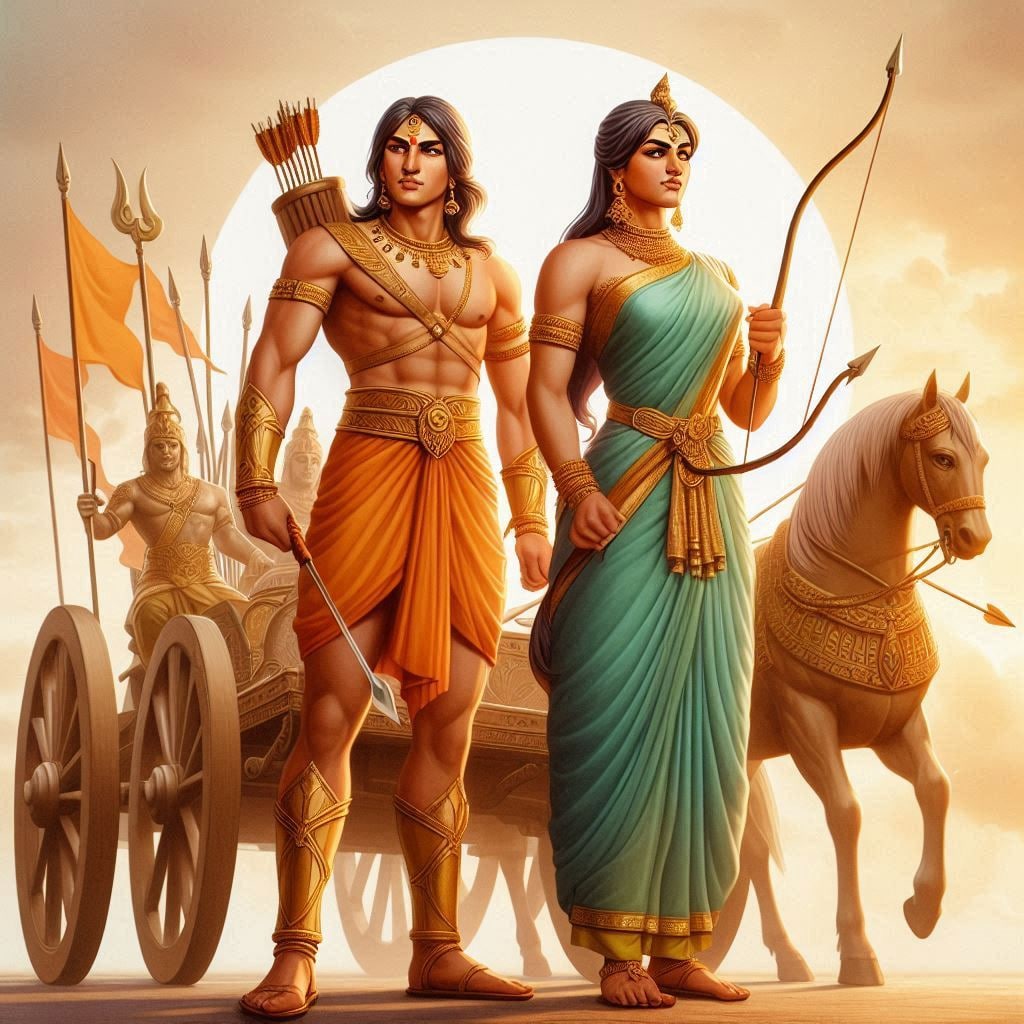
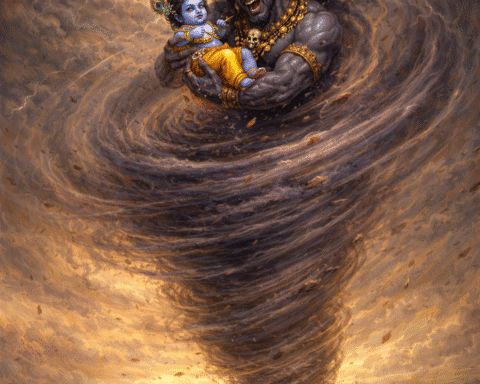
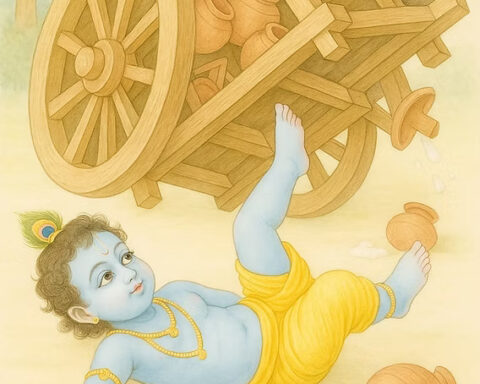
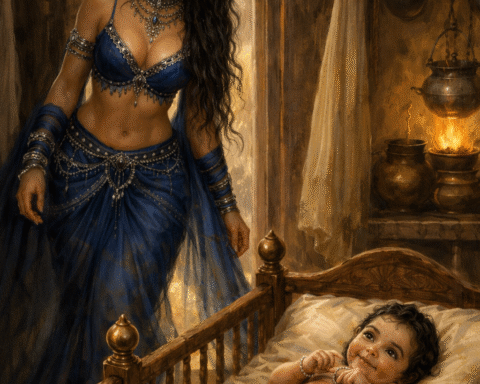
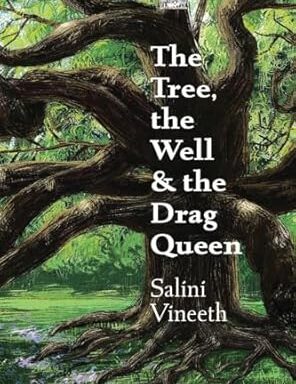
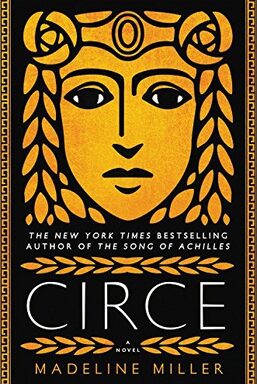
Stories inside stories of Mahabharata are so fascinating. They are all related and each intertwined with another. Fury of Amba is a message if a woman is furious her rage would burn any man no matter how valorous, if not in this life may be in the next. There will be no escape, though. Also another message being once a vow is taken there is no going back and Dharma must be pursued no matter the consequence.
Well said, Abhijit. Dharma is paramount. Thank you for stopping by and appreciating my story.
Hell hath no fury like a woman enraged. This story is a reminder of how many innocents have suffered because someone moved things out of ego. The innocents find a way to avenge, at some point in evolution, turning from victim to warrior.
A woman can make or break, if she wants to. Shikhandi’s tale had always fascinated me. This post made me revisit that tale once again.
That’s one good story that keeps readers retention and interest! I usually don’t get interested in this kind of stories but the storyline of this something I can’t stop reading to know what would happen till the end.
Thank you, Jeanine. I’m honoured that you continued to read my story despite not being a big fan of this genre.
Ratna Prabha, finally a story that I know (but didn’t know about Satyajit)…and yet, I read it again. Your storytelling skills are very good. Please explore and take this talent further.
Thank you, Janaki. I hope to keep writing.
Once again I was enraptured reading something I already knew but somehow you make it sound new to me. I think the power is in your pen, the way you tell the story
Whoa! I knew bits of this story but certainly wasn’t aware of Shikhandi being the avatar of Amba and what their backstory was. I like how you described Shikandi’s avatar of Amba saying it was the mix of both the best of masculine and feminine traits
I am mesmerized by the depth of knowledge you hold on Indian Mythology. Trust each post I read it increases my respect for you. Very few can write like this which all love to read, gain knowledge from it and also enjoy. God bless you.
I feel so satiated, Samata, by your comment. Thank you for your kind encouragement and appreciating my love for our puranas and itihasas.
I knew bits and pieces of this story, but I had no idea about Shikhandi being the avatar of Amba and the fascinating backstory that comes with it. The way you explained it was so captivating, and it opened my eyes to so many details I hadn’t considered before. Your ability to weave these ancient stories in such a relatable and insightful way is remarkable. Honestly, I think you should consider compiling all these brilliant posts into a book. It would be such a valuable resource for anyone looking to understand Indian Mythology especially children.
Thank you so much for your amazing appreciation. To publish a book is definitely hovering in my mind, even if it is lost in my hoary part! Will retrieve the idea and work on it, thanks to your motivating words, Anjali.
Amba’s story evokes such a mix of emotions—her courage, rage, and resilience against injustice are deeply moving, yet her tragic quest for revenge underscores the devastating weight of unresolved pain.
Unresolved pain is dangerous, both for the victim and the target! Thank you, Kanchan, for stopping by and appreciating my story.
Women are blessed. It is how we use our blessing that makes the difference. Mythology always has interesting twists.
She is a woman scorned! I like this story from the Mahabharata. Thank you for explaining it in simple terms that even a child can understand. I absolutely love your writing style.
Thank you, Shalini. Simplicity is what I seek in my writing and I’m so glad you like it too.
A woman must remember that she is powerful, in the face of being scorned and victimised. such stories serve as a good reminder and i hope a call to strength for anyone facing a bad situation.
Yes, a woman’s power should never be underestimated, especially by herself. Thank you, Ishieta
I always look forward to your posts every week for the story I’d come to know..you make it simple and easy to understand. Thanks for sharing
Thank you, Sindhu. I hope to keep writing such stories in a simple manner.
I just completed reading Shikhakhandi’s chapter in Mahabharata. This epic never ceases to intrigue me.
Me too, Mandira. The more I read, the more I’m fascinating by my puranas and itihasas. Thank you for reading my story.
The moment Bhishma sees Shikhandi on the battlefield he knows his time has come. He doesn’t try to hide or run away. Our sins have to be paid for, no matter how big we are.
Such a powerful retelling of Amba’s anguish and Shikhandi’s transformation. The depth of her journey and rage is truly captivating!
Never knew this angle of the Bhishma story – very interesting!
Oh yes, Amba is one of the most powerful characters in the story. Her story needs to be repeated as much as possible. In fact, I put her strength a notch above Draupadi’s.